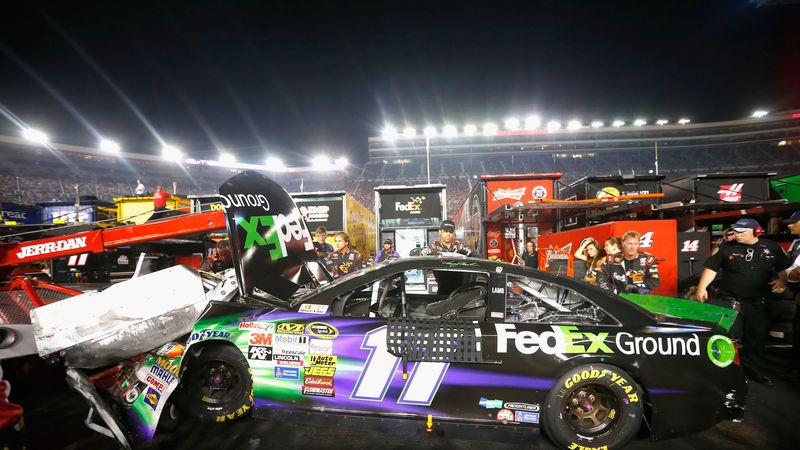CONCORD, N.C. - Say goodbye to stock cars without sheet metal in NASCAR.
NASCAR officials announced a new "Damaged Vehicle Policy" Wednesday at the NASCAR Research & Development Center that will be enforced in all three of the sanctioning body's national touring series.
The biggest change will be that teams will no longer be allowed to replace body panels that are damaged in a crash or contact on the track. Teams will be permitted to repair damaged sheet metal and parts on pit road with a five-minute time limit. If a car's damage forces the team to go behind pit wall or takes longer than five minutes to repair, the car will not be allowed to return to the race.
NASCAR officials said the decision is based on competition and safety of its competitors.
"We have a lot of cars that are going back on the track that end up in 38th position, for instance, that probably don't need to be out there from a safety and competition aspect because they always tend to bring out more yellows with stuff falling off," Scott Miller, NASCAR senior vice president of competition, told NASCAR.com.
Two new pit road penalties were announced for teams that experience damage during a race. Any driver that receives a speeding penalty on pit road under cautionNASCAR will also lose 15 seconds from the
"That's another thing we discussed with the teams and internally," Miller said. "Too many men over the wall is also defeating the purpose of the policy; it would encourage teams to bring extra people well-versed in going over the wall to repair cars. So too many men over the wall just has to signal the end of that car's day."
The new policy does not apply to vehicles that suffer mechanical failures not related to crash damage, NASCAR said. Teams will be allowed to repair cars with mechanical or electrical failures without the five-minute clock being used.
Miller used a broken transmission at Watkins Glen or Pocono as an example of what teams will be allowed to repair during a race.
"It's more about crashed vehicles and all that is involved with that, from the crew guys to the drivers to dropping more debris on the track, which always happens," Miller said. "So there are exceptions for mechanical failures, those things can be rectified in the garage. That's going to be up to the series director's discretion to make those calls, but it's not going to be that difficult."

